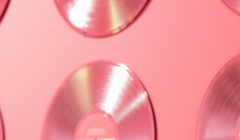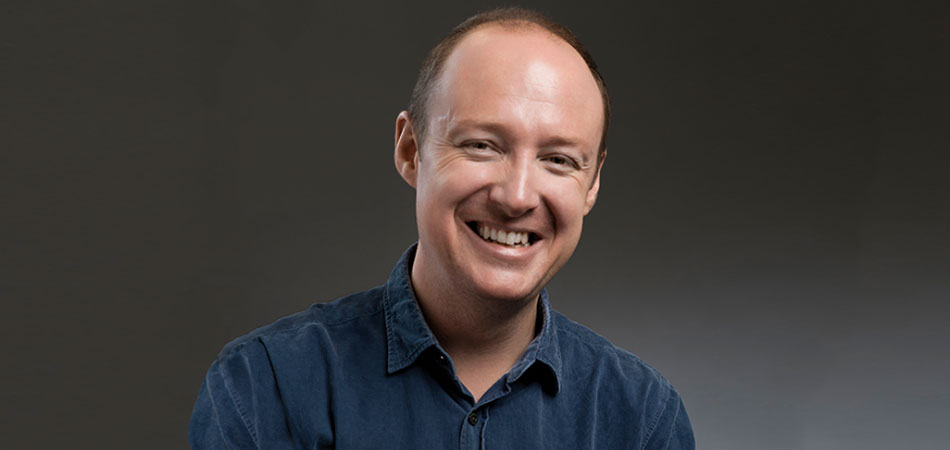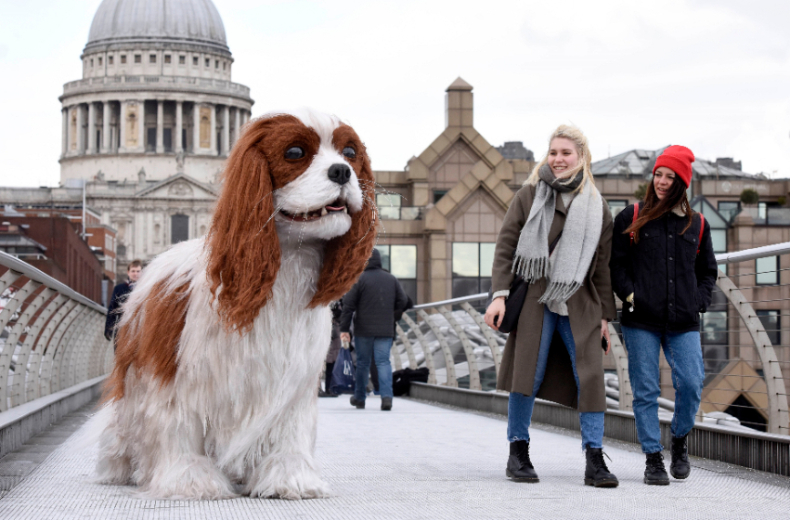
How can brands use music to overcome generational tensions?
Joanna Barnett, Strategy Director at Truant, on the power of music to bring people closer together and broaden a brand’s appeal.
“The PR industry has the most unfulfilled potential. There has never been a better time for PR to position itself as the lead creative discipline."


Career to date:
2009, Creative Director, 3 Monkeys | Zeno
2007, SVP, The Red Consultancy San Francisco
1996, Account Manager to Divisional Director, The Red Consultancy
1994, Account Manager, A Plus/Brodeur
Stuart Yeardsley: On a day to day basis, I’m involved in all our clients from the creative perspective. It’s about ensuring creativity remains at the centre of every client conversation, every decision we take to make the best quality work we can. It’s guiding creativity, rather than dictating it or being a bottleneck but also providing clarity, stripping away the noise to get to the real problem we are trying to fix.
Our north star is fearless pursuit of the unexpected. How unexpected is it? It’s about removing our filters, pushing ourselves out there to do truly amazing creative work. And how fearless are we being in terms of getting a solution to a client problem that is truly entertaining, truly provocative to change perceptions, change behaviour and deliver commercial impact?
Overall, it’s how do we drive a culture without creative boundaries and limitations? So, it’s a natural muscle that people do every day in terms of asking is there another or better way to do this? Opening their eyes to unlearn what they know, to have a healthy disregard for the methods of the past. And to inspire them and make them feel excited and have fun. There’s a degree with which creativity relies on an environment of openness, to know that there’s no idea they can’t put forward. No day is ever the same so, why wouldn’t you want to be in an industry where you get to work on lots of different clients, different problems and different kinds of challenges?
Stuart Yeardsley: Still to this day, I don’t see myself as creative. More that annoying person who questions everything all the time. I’ve been fortunate to work with inspiring people who are very strategic so, strategy’s always been at the heart of the work. I’ve also worked with people who have an entrepreneurial spirit and I’ve been fortunate to work in diverse sectors from booze to burgers and biscuits and from animal health to anti-drink drive campaigns on global brands like McDonald’s, Microsoft and AB InBev on both sides of the Atlantic.
The journey here has always been agency side. From A Plus/Brodeur, which merged into what is now Porter Novelli, to the Red Consultancy to spending some time in San Francisco and learning that it’s a very different market place. London has got this vibrancy, this energy and spirit that you don’t get anywhere else in the world, a constant culture of innovation and experimentation.
“The PR industry has the most unfulfilled potential. There has never been a better time for PR to position itself as the lead creative discipline."
Stuart Yeardsley: They wanted to shake things up, they wanted to do things differently. There was an entrepreneurial independent spirit. It was owned by a person, an individual and that’s a very different perspective than a company that is part of a network. That independent spirit makes you a bit bolder, a bit braver.
The PR industry has the most unfulfilled potential. There has never been a better time for PR to position itself as the lead creative discipline. We know how to create brand stories which transcend media, channels and audiences, stories which start and drive conversations, culture and headlines. Now we can marry data analytics with the art of authentic storytelling to captivate and connect brands with people in a human way which is measurable.
Stuart Yeardsley: The work we’ve done with AB InBev, launching Bud Light in the UK, the work we do for Budweiser and Corona, which has driven business impact in terms of sales but also, showing the impact we can have as part of an integrated team as well. Sometimes we’ve had the chance be the creative lead, but we’re part of one big ‘tribal’ integrated team. There is always respect around the table of all agencies and what they can bring to the brand.
The work that we’ve done around Halloween for Budweiser was the first time they’d entered that whole Halloween market. It was an integrated campaign called the King of Fears taking people on a journey from haunted fancy dress shops with illusionists and scare experts to immersive Nightmare Circus Halloween club event.
The other work that we did around the Euro 2016 which is being replicated and made bigger for this year’s World Cup. Made by Fans was having fans bless the beer which was then put into the brewing process to make Budweiser. It was an experience that fans could get involved in, but it had editorial value to it as well.
The most recent work for Boehringer Ingelheim and their animal health flea treatment Frontline Plus. We built the ‘Titch’ a giant, animatronic dog, to get pet owners to take a closer look at the issue of flea egg infestations in the home and took him to Crufts.

Stuart Yeardsley: The best ideas are the ideas you go oh I wish I’d have done that. It’s something that has never been done before. It breaks with conventions and shakes the status quo. It creates culture. And they are so simple. It passes the pub test; would you talk about it down at the pub with your mates. But an amazing idea is only as good as amazing execution. The work that was done around Missing Type for blood donation was genius. The simplicity of it, how it spread. It’s so memorable.
Stuart Yeardsley: The Swedish number. Yes, that was an ad agency that created it but arguably that could have been any agency, a PR agency could have created that. That’s what you’re seeing now is this blurring of the lines where a good idea can come from anywhere. Amazing creative work elicits a human reaction, it makes you feel something. It connects with you at a deeper level. It makes you want to share it and talk about it, over dinner or down at the pub.
“Brands have got more opportunity now to play a greater role in people's lives and make a meaningful contribution. It's not about having a CSR program as a bolt on, it's about what's your point of view and how does that relate to the wider context of the world?"
Stuart Yeardsley: The PR industry has got to move forward, to reinvent itself in terms of brand communications. There’s no reason why PR can’t be the creative lead, but we need to win trust. We need to prove the value of earned communications and the value of creativity to deliver business impact. The blurring of the lines between the traditional marketing disciplines will continue. Innovation will be core to creativity, how we connect brands with people and how we show impact for what we do.
Brands still need a consultancy when it comes to communications. We’re a creative communications consultancy. We sell creative and we sell consultancy, and clients want and need both. How do you protect the brand but also how do you create powerful moments of connection for brands to connect with people in such a diverse, polarised, and busy world? And how do you start a conversation in today’s world that is filled with fragmented influence and media and touchpoints?
Word of mouth is arguably one of the most powerful forms of communication. It’s never gone away. We just have more ways of spreading word of mouth now. So, how do you influence that conversation that is going on in the places and spaces where you want your brand to be present?
Stuart Yeardsley: For me it’s looking at how does a brand forge an emotional connection with people? How can you align a brand’s values to those of the people you’re trying to start a conversation and form a relationship with? So that people care enough to want to spend time with your brand. The closer your values align, you’re going to have a much stronger connection.
Brands have got more opportunity now to play a greater role in people’s lives and make a meaningful contribution. It’s not about having a CSR program as a bolt on, it’s about what’s your point of view and how does that relate to the wider context of the world? If PR is going to have a place alongside the other marketing disciplines, we need to talk about value in meaningful ways. We created a tool which allows us to evaluate the impact, the outcome of the work that we do. Creativity for creativity’s sake, it’s like chip paper, it’s here one day, gone the other day.
Stuart Yeardsley: To do amazing, awesome creative work with impact. For everyone to feel they have no boundaries or limitations when it comes to creative thinking, to feel like everyone has clarity in our purpose and north star. For people to show up, engage and bring their best talents, to be here, to support each other and be open to new ideas wherever they come from. That we’re doing amazing creative work that is brave that is as good as if not better than our peers within the advertising world and other marketing disciplines. Because we have the ability through the rigour of strategy we’ve developed now and the rigour of creativity with an editorial lens to deliver impactful work for the client.
Stuart Yeardsley: I’m constantly inspired by my seven-year-old twins and their hunger to learn and their imagination that’s limitless at the moment. It’s almost reminding ourselves of what we should be still doing. I’m a passionate surfer so the ocean and everything to do with the ocean is a huge source of inspiration and also therapy for me. Nature is awesome and the power and beauty of it is inspiring.
Culture fascinates me, the speed at which culture changes and the influence it can have and how anything that we do has to have some cultural resonance and currency. There’s brands that have done a huge amount to add to culture and create culture as much as leveraging culture. Brands like Patagonia and REI have done such a genuine authentic job to really bring their values to the fore and live and breathe them.
The trend that we’re focused on is the idea that customers want to know more about the social, economic and environmental impact of brands. How do you evaluate that in the brands you work with?
People’s interests, values and opinions are getting more diverse. The challenge will be to steer brands so that people actually will give a toss and spend some time with them in the first place. Meaning that brands have to be culturally relevant, and or provide a real societal impact. In the polarised world of today, we as marketers could actually make an impact in sales through being societally relevant or contributing to people’s lives. That is the big challenge and also a big opportunity.
Looks like you need to create a Creativebrief account to perform this action.
Create account Sign inLooks like you need to create a Creativebrief account to perform this action.
Create account Sign in